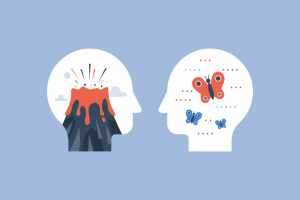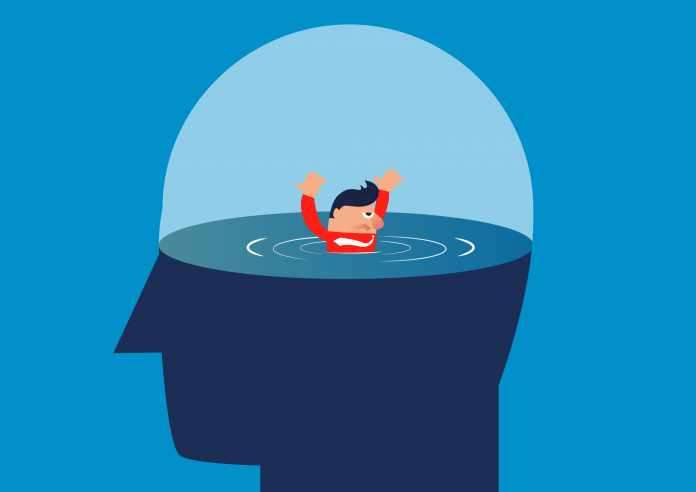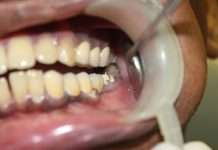Panic attacks are an intense and sudden surge of anxiety, fear, or panic. These episodes are quite overwhelming, physically and emotionally. During an episode, the individual will feel hard to breathe, increased heart rate, inability to control emotions, tremble, sweat, and even blackout due to the fear and the symptoms. A person with such a disorder might have a hard time handling his work and social life. So, how to deal with panic attacks?
Table of Contents
Deep breathing helps you deal with panic attacks
One of the major symptoms that lead to tremors and blacking out is hyperventilation. You would feel like you cannot control your breathing, and your body would feel an instant shortage of oxygen, leading to an inability to think straight. Thus, deep breathing is your first step on how to deal with panic attacks.
Deep breathing is just conscious breathing. You can use your mouth for breathing in and slowly breathe out. Some recommend breathing in, holding your breath for a second or two, and then breathing out.
Realizing the panic attack

It might not sound like a plan to deal with it, but just acknowledging. However, acknowledging will help you remind that you are about to tremble, blackout, or even curl into a ball. It will help you initiate the deep breathing or the other tips we are about to discuss. Once you believe that you have the tools to handle what is about to come to you, the anxiety would decrease.
Slow it down for a second
A panic attack happens when you get overwhelmed by something. Your environment is full of triggering stimuli that are feeding your panic reaction. Calm down, close your eyes, and slow your reaction. In most cases, the stimulus is visual. The fear of stage speaking is the fear of seeing a large audience staring at you. Thus, close your eyes. Sometimes, closing your eyes and ears would help. Cut those stimuli off for a second or two. Focus on breathing and think of how to deal with the situation.
If you get triggered by certain events, it is best to have a plan in hand. Say, you get triggered by an overwhelming number of pages to study for your exam, always have a time management plan in hand. Close your eyes, remember your plan, and calm yourself before opening your eyes.
Mindfulness is a trick to deal with panic attacks
How to deal with panic attacks when it just springs up on you? For some, a sight of an accident could trigger a panic attack. You cannot plan for such actions. Here is where mindfulness comes in handy. During a panic attack, you detach from your surroundings, and it would take you back to a childhood event or undesired sense of emotion. In simple terms, you would no longer see what was triggering you. The sight of an accident is the trigger, but during the attack, you would be reliving a past accident.

The best way to come out of this matrix is a physical sensation. A familiar physical sensation would bring you back to your senses. It could be a simple thought of running your hand over jelly, touching your jeans, or even the sound of someone you love. Any physical sensation would bring you back to reality and reduce the intensity of the attack.
Mild exercise could help combat panic attack
You will be visibly under stress, and you might not be able to move. But, if you could try and just start pacing around your room slowly, it would increase endorphin. Endorphin is a good stress-combating hormone triggered by exercise. Some prefer walking, and there are a few who use a punching bag to let out their stress.
Lavender aromatic oil
Lavender oil can soothe your nerves and calm you down. If you are prone to such attacks, always have a cloth soaked in lavender oil. You can also relax by drinking chamomile or lavender tea. Remember that consuming lavender with benzodiazepines can lead to severe drowsiness.
Moreover, the effect of aroma varies between individuals. If you feel that sandalwood oil would do the trick, you can try it. The sense of smell can always trigger an emotion. For instance, the smell of cinnamon would remind some about their grandmothers baking delicacies.
Seek medical help for panic attacks
There are several home remedies to deal with panic attacks. However, it is imperative to know that panic attacks have to get treated medically. Thus, depending on the severity of the attacks and your work or life situation, medical intervention might be essential. For instance, a pilot having panic attacks could turn disastrous.
Most doctors would begin by recommending psychology therapies, which include counseling, yoga, exercise, laughing therapy, and more. Beyond that, doctors might offer a prescription for alprazolam or other benzodiazepines. Remember that Xanax or any other benzodiazepine medication is highly addictive and have severe withdrawal effects. Thus, it is essential to stick to the course, learn about the side effects involved, and most importantly, do not mix it with alcohol or other drugs.
CBD and panic attack
The scope of CBD is increasing every day. According to a study in 2015, CBD can help in dealing with anxiety and distress. Remember that CBD is not for all. In some cases, individuals might experience increased heart rate and anxiety after CBD consumption. Thus, talk to your doctor regarding using CBD as a solution for panic attacks. However, if you are already using marijuana, CBD is a healthier alternative to it.

Moreover, if you are consuming antidepressants, benzodiazepines, heart medication, or macrolide antibiotics, it is best to avoid CBD.
Remember that these medicines and home remedies would not work wonders on the first try. It is best if you practice it regularly and must hold on to a technique for long enough to master it. Do not just breathe in and out for three seconds and consider it to be a useless tip.


















